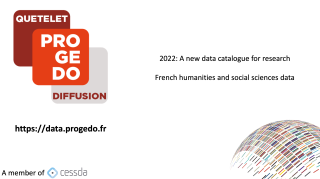Past events
This free 90-minute online workshop will explain the difference between types of consent and how, as a researcher, you can consider data archiving, plus future reuse in the consent process, considering one-off and process consent.
This is a workshop designed to give participants a virtual tour of ReShare, where you will learn everything you need to know in order to archive data using our self-deposit repository.
Data management is essential to make sure that well-organised, well-documented, high quality and shareable research data can be produced from our research projects. In this free 90-minute online workshop, participants will learn about the relevant legislation, such as data protection legislation and the General Data Protection Regulation (GDPR). Participants will also learn about strategies that enable them to share research data. This includes carrying out an assessment of disclosure risk, obtaining informed consent, anonymising data and regulating access to enable data to be shared.
Data management is essential to make sure that well-organised, well-documented, high quality and shareable research data can be produced from our research projects. In this free session we will discuss key essential processes: Writing a data management plan for research grants; documenting your data appropriately and effectively; formatting and organising your data; and storing your data, including data transfer, encryption, and file sharing.
Dr J. Kasmire, of the UK Data Service, is running a course for the National Centre for Research Methods (NCRM) from 26 April to 24 May 2022.
In this interactive workshop, you will have an opportunity to develop an anonymisation plan, test your knowledge on legal and ethical obligations and discuss how to strike a balance between anonymisation (or pseudonymisation), access regulation, as well as consent.
Time series analysis and forecasting are among the most common quantitative techniques employed by businesses and researchers. Largely used in big data, these methods are used to identify trends, clean your data, and to predict the future. This workshop begins by exploring the underlying concepts and components of time series analysis, then moves on to a code demonstration that uses open-sourced police recorded crime statistics to visually explore these components. Participants are invited to work alongside the code demonstration to gain hands-on and practical skills.
This introductory workshop is intended for anyone who wants to hear about finding data from the UK Data Service and contains interactive elements throughout.
SSHOC partners and stakeholders are coming together on 6 and 7 April in Brussels and online for the SSHOC Final Conference titled “Advancing SSH Research with SSHOCingly good and sustainable Resources”.
The SSHOC final conference brings together Research infrastructures, Researchers, Research Libraries and Archives, EOSC key-players, industry and policymakers from the Social Sciences and Humanities and beyond.

